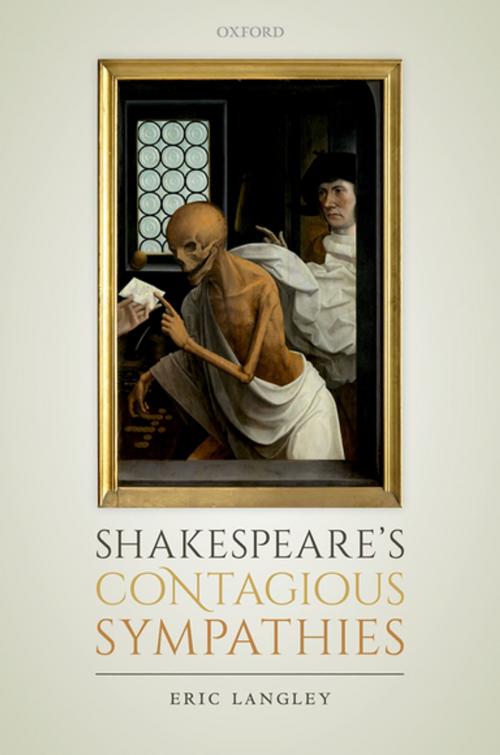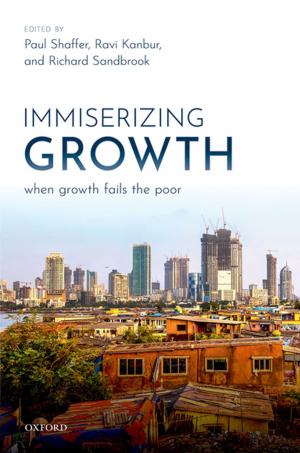Shakespeare's Contagious Sympathies
Ill Communications
Nonfiction, Entertainment, Drama, Shakespeare, Fiction & Literature, Literary Theory & Criticism| Author: | Eric Langley | ISBN: | 9780192554925 |
| Publisher: | OUP Oxford | Publication: | October 25, 2018 |
| Imprint: | OUP Oxford | Language: | English |
| Author: | Eric Langley |
| ISBN: | 9780192554925 |
| Publisher: | OUP Oxford |
| Publication: | October 25, 2018 |
| Imprint: | OUP Oxford |
| Language: | English |
Understanding the early-modern subject to be constituted, as Shakespeare's Ulysses explains, by its communications with others, this study considers what happens when these conceptions of compassionate communication and sympathetic exchange are comprehensively undermined by period anxieties concerning contagion and the transmission of disease. Allowing that 'no man is . . . any thing' until he has 'communicate[d] his parts to others', can these formative communications still be risked in a world preoccupied by communicable sickness, where every contact risks contraction, where every touch could be the touch of plague, where kind interaction could facilitate cruel infection, and where to commiserate is to risk 'miserable dependence'? Counting the cost of compassion, this study of Shakespeare's plays and poetry analyses how medical explanations of disease impact upon philosophical conceptions and literary depictions of his characters who find themselves precariously implicated within a world of ill communications. It examines the influence of scientific thought upon the history of the subject, and explores how Shakespeare—alive to both the importance and dangers of sympathetic communication—articulates an increasing sense of both the pragmatic benefits of monadic thought, emotional isolation, and subjective quarantine, while offering his account of the considerable loss involved when we lose faith in vulnerable, tender, and open existence.
Understanding the early-modern subject to be constituted, as Shakespeare's Ulysses explains, by its communications with others, this study considers what happens when these conceptions of compassionate communication and sympathetic exchange are comprehensively undermined by period anxieties concerning contagion and the transmission of disease. Allowing that 'no man is . . . any thing' until he has 'communicate[d] his parts to others', can these formative communications still be risked in a world preoccupied by communicable sickness, where every contact risks contraction, where every touch could be the touch of plague, where kind interaction could facilitate cruel infection, and where to commiserate is to risk 'miserable dependence'? Counting the cost of compassion, this study of Shakespeare's plays and poetry analyses how medical explanations of disease impact upon philosophical conceptions and literary depictions of his characters who find themselves precariously implicated within a world of ill communications. It examines the influence of scientific thought upon the history of the subject, and explores how Shakespeare—alive to both the importance and dangers of sympathetic communication—articulates an increasing sense of both the pragmatic benefits of monadic thought, emotional isolation, and subjective quarantine, while offering his account of the considerable loss involved when we lose faith in vulnerable, tender, and open existence.















